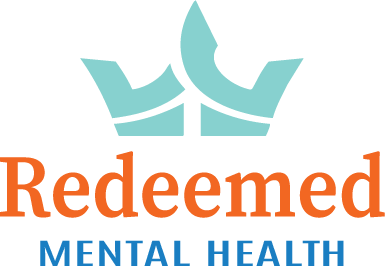If you’re struggling with mental health at work, you’re not alone—and you might be wondering what your rights are. Can you lose your job for having a mental health condition? What protections are in place, and how can you find the help you need?
At Redeemed Mental Health, we work with hardworking people across all industries—nurses, truckers, union workers, teachers, first responders, and more—who are doing their best to keep it together while dealing with mental health challenges. Our job is to help you hold onto yours, while getting the treatment and support you deserve.
Understanding Your Rights: Can You Be Fired for Mental Health Issues?
Under laws like the Americans with Disabilities Act (ADA) and Family and Medical Leave Act (FMLA), employers can’t legally fire you just because you have a mental health condition. That includes depression, anxiety, PTSD, or any other medically recognized issue. If your mental health issues at work are properly documented, and if you’re able to do your job with reasonable accommodations, your employer is obligated to support you—not punish you.
But here’s the catch: if you don’t speak up, they might not know. And if mental health challenges lead to things like absenteeism, performance issues, or workplace conflict, those symptoms could be misinterpreted unless you’ve communicated and taken steps toward getting care.
Why Mental Health at Work Matters
Mental health and well-being aren’t luxuries—they’re essential for job performance, safety, and personal satisfaction. Whether you’re on the road, in a classroom, or working on the floor of a hospital, your physical and mental health directly impact your ability to show up and do your job.
The Surgeon General’s Framework for Workplace Mental Health and Well-Being emphasizes that workplaces play a significant role in supporting or harming employee mental health. Burnout, stress, and trauma are real occupational hazards. Employers are being urged to create workplaces that support mental health—but that change starts with you advocating for yourself and knowing what resources are available.
What If You're Afraid to Ask for Help?
We get it. Many workers worry about stigma, job security, or being seen as “weak” if they speak up. But asking for help doesn’t make you weak—it means you care about your health, your job, and your future.
At Redeemed Mental Health, we offer confidential, compassionate care through our in person Intensive Outpatient and Partial Hospitalization programs, as well as our Virtual Therapy and Virtual IOP (Intensive Outpatient Program). Led by licensed psychologist Dr. Andrea Wagner, our team understands how to treat mental health challenges discreetly, effectively, and with the flexibility needed for people who have busy or unpredictable work schedules.
You can access therapy sessions, medication management, and evidence-based treatment from the comfort of your home. We’re here to support mental health without making it harder to keep your job.
You Have the Right to Care—and to Work
Whether you’re navigating mental health challenges, substance use, burnout, or mental illness that’s been pushed to the back burner for too long, you don’t have to keep going it alone.
We believe in mental health benefits that actually work for working people.
Call +1 (888) 276-4435 today so we can help you find support, stay employed, and feel like yourself again.
FAQs About Mental Health Issues at Work
What are the essentials for workplace mental health?
The essentials for workplace mental health include support from leadership, access to resources, open communication, protection from harm, and policies that promote well-being. When employers prioritize mental health, they help create a safer, more productive environment.
How has the nation’s current workplace landscape changed in terms of mental health?
The nation’s current workplace landscape is shifting to recognize that mental health is just as important as physical safety. More companies are offering mental health benefits, flexible scheduling, and support services—but not all employers are caught up yet, which is why self-advocacy and outside support remain critical.
How can employers support workers facing mental health challenges?
Employers can support workers by offering access to mental health resources, reducing stigma, encouraging time off when needed, and providing accommodations. At Redeemed Mental Health, we also support workers directly with flexible online therapy and virtual IOP programs tailored for working adults.
What if I’m facing just one mental health challenge—should I still ask for help?
Yes—one mental health challenge can still affect your focus, performance, and quality of life. Whether it’s anxiety, burnout, depression, or something else, early support leads to better outcomes. You don’t need to wait until things get worse to take care of your mental health.
How did the pandemic bring the relationship between work and mental health into focus?
During the pandemic, many workers experienced isolation, burnout, and increased stress, which pushed mental wellness to the forefront of workplace conversations and exposed gaps in employer support.
What does community work life harmony mean?
Community work life harmony refers to a balanced, supportive environment where employees can thrive in both their personal lives and professional roles. This concept emphasizes that work should not come at the cost of family, mental health, or well-being.
How does worker voice and equity impact workplace mental health?
Worker voice and equity ensures that all employees—regardless of role or background—have a say in their workplace experience. This promotes fairness, reduces stress, and helps build a culture of respect, which are key components of mental health in the workplace.
What does workplace mental health well being really mean?
Workplace mental health well being refers to a work environment where employees feel supported emotionally, mentally, and socially. It includes access to resources, time to rest, respect from leadership, and a culture that values mental wellness as much as productivity.
What is meant by "protection from harm, connection, and community"?
Protection from harm, connection, and community form a three-part foundation for a healthy workplace. Employees need to feel physically and emotionally safe, connected to others, and part of a workplace culture that values human well-being—not just output.

























